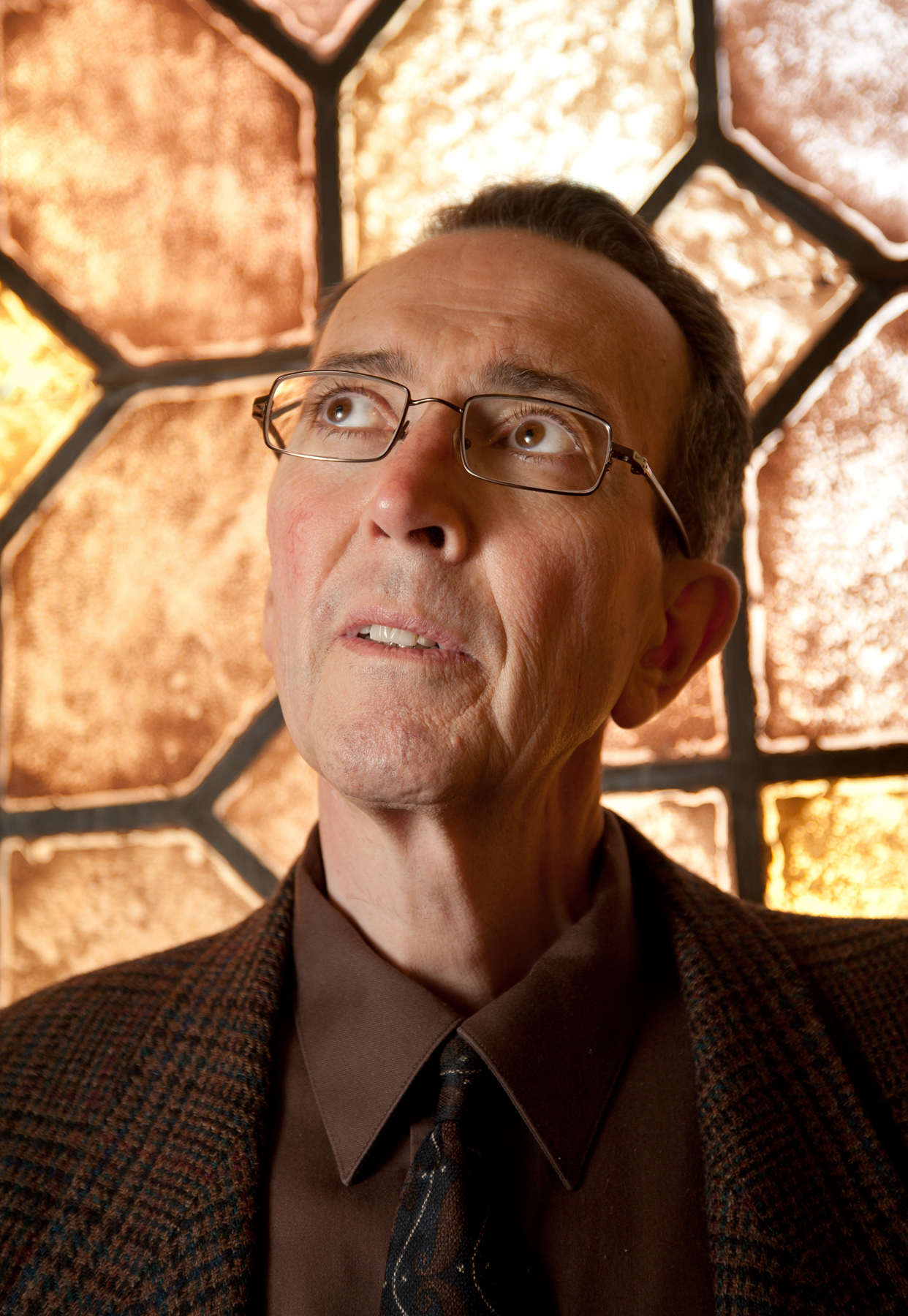Professor Michael Marra is determined to continue lecturing despite battling the last stage of cancer

Professor Michael Marra is a UCLA professor of Japanese literature, aesthetics and hermeneutics, and is currently battling a terminal disease in its last stage. Despite his struggles, he continues to teach.
By Andra Lim
Feb. 10, 2011 1:49 a.m.

Aside from English and Japanese, Professor Michael Marra knows many other languages, such as Italian, Latin, Greek, French, German, Sanskrit and Pali.
Sometimes Michael Marra can barely lift open his eyelids.
They weigh down, leaving him with only a slit of vision, a slice of his surroundings. It’s a casualty of the cancer that’s worn down his body for two and a half years over 11 cycles of chemotherapy.
At other times, his brown eyes are wide open, absorbing a world colored by the news he recently received from his doctors ““ the rare form of sarcoma will take his life over the next few months.
“Everything looks brighter, more luminous, more clear,” he said. “I was walking today toward Royce Hall … smiling as if it was the first day because I’ve never seen anything more beautiful.”
It’s Friday afternoon, and Marra, a professor of Japanese literature, aesthetics and hermeneutics, sits in his office. Earlier in the morning, he underwent a procedure at the UCLA Medical Center ““ one of several he goes through each week.
Despite the illness and the treatments, Marra did not miss a single class until December 2010. Each Friday, his wife drives him to campus for class. This is a pattern that will continue until it becomes too painful for Marra to make the journey.
His students keep him going. Today, he’s looking forward to teaching his class about the philosopher Heidegger.
In the Japanese culture that has defined Marra’s outlook on life, death is considered natural and unproblematic.
“It’s not seen as a negative, as a minus, something deficient. It cannot be a traumatic event ““ it’s part and parcel of life,” he said, adding that this view has helped to partly reconcile him with reality.
One of the most painful parts of his illness is its timing. Marra is 54, and said he has just begun to give meaningful lectures ““ when he was in his 20s and 30s, he was still piecing together puzzles in his research.
In later years, he founded two methods of interpreting Japanese literature: aesthetics and hermeneutics. He loves unraveling poems, parsing them for meaning.
“One poem only has 31 syllables,” he said. “And every time I read the 31 syllables, a new thing comes.”
Content with the strides he has made in his research, Marra wants to spend the remainder of his time teaching others what he knows.
He will stay up until 2 or 3 a.m., answering e-mails from students who are studying in Japan. And last week, he started a new project: organizing a book for the 20th anniversary of the Center for Japanese Studies.
Though he hopes to finish out the quarter, Marra told his students at the first class meeting that this might not be possible. He said they were free to drop the course and left the classroom for several minutes. When he came back, everyone was still in their seats.
“He mentioned it would be his last time teaching. I thought it was a good chance to learn from someone who’s studied the subject for decades and is so dedicated to stay on so long,” said Jennifer Koga, a third-year Japanese student in the class.
Marra has accelerated the pace of the course and given students a number of essays so they can receive a final grade in the class even if it’s cut short.
“My will now is to complete the course to the very end. With the exception of the time I spend teaching, I spend it all studying,” he said.
Any regrets are overshadowed by the luck he’s had. To this day, he is amazed that a boy from a small village in Italy ended up as a professor at UCLA.
Marra first took a Japanese class at the University of Turin, but his Italian professor could only teach him grammar rules and not the Japanese characters. When Marra decided to teach himself the characters, he faced another language barrier.
“There were no dictionaries for Japanese-Italian. The only dictionary existing was Japanese-English, so I had to teach myself the English language so that I could learn Japanese,” Marra said.
He set aside 19 days for memorizing parts of the English dictionary. He had no idea how to read English or pronounce any of the words. Still, he managed to translate from English to Italian to Japanese, and could read modern Japanese texts by the time he graduated from college.
After earning a fellowship from the University of Tsukuba, Marra departed Italy for good. Leaving his home country was a choice made for him ““ at the time, there were few opportunities to study the Japanese language and culture in Italy. Since then, Marra has studied and taught at many universities in both Japan and the U.S., eventually landing at UCLA.
Still, Marra maintains a single tie to his hometown, consoling and talking to his 77-year-old mother in Italy over the phone almost every day.
When the time comes, he will be buried at Holy Cross in Culver City, where there’s a view of the ocean. On his tomb will be a poem by the Japanese poet Buson:
_Sun setting on the flowers,
My house “”mdash; a far away
Path through the fields._
“It’s getting dark, and I have to go home, but my home is so far away. And I don’t know which home that might be,” Marra said. “I will tell you afterward.”
But for now, the home Marra will go to after class lies about an hour’s drive from UCLA. He plans to spend his evening there, grading midterm exams.

